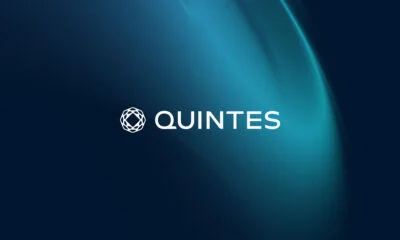News
The First Bitcoin ETFs Have Been Approved By US Regulators
The move takes cryptocurrencies a step further towards full Wall Street integration.

Fifteen years following the mining of the genesis block, the US Securities and Exchange Commission (SEC) has granted approval for Bitcoin exchange-traded funds (ETFs). The ruling marks a significant milestone in Bitcoin’s integration into the traditional financial system it once aimed to challenge. The decision paves the way for the availability of 11 spot Bitcoin ETFs to investors, including those offered by Grayscale, Fidelity, and BlackRock, among others.
Gary Gensler, the SEC chairman, clarified the approval by stating, “While we approved the listing and trading of certain spot bitcoin ETP shares today, we did not approve or endorse Bitcoin. Investors should remain cautious about the myriad risks associated with bitcoin and products whose value is tied to crypto”.
For a decade, the SEC consistently rejected proposals for Bitcoin ETFs, which essentially function like bundles of assets, similar to mutual funds but tradable on exchanges. The commission regularly cited investment safety concerns, but now approval has been granted, new investors won’t need to set up individual wallets to trade Bitcoin, making it more accessible.
This development has generated considerable excitement among cryptocurrency enthusiasts, as ETF-issuing companies will be required to acquire corresponding amounts of Bitcoin to back their funds. Interestingly, the immediate impact on Bitcoin’s price was minimal, but in the long run, the introduction of a Bitcoin ETF is anticipated to facilitate the entry of traditional institutional investors into the cryptocurrency realm. This could include pension and insurance funds, leading to increased demand for Bitcoin.
Also Read: Non-Fungible Tokens: A Beginner’s Guide To Getting Started With NFTs
Until now, investors seeking exposure to cryptocurrency often invested in shares of crypto-centric companies such as Coinbase and MicroStrategy, the latter holding over $8 billion in Bitcoin as of January. The emergence of a Bitcoin ETF could potentially affect the valuation of these companies.
It’s important to mention that a false announcement briefly circulated on the SEC’s Twitter/X account on Tuesday, falsely claiming approval of Bitcoin ETFs, which caused some confusion.
News
Samsung Smart Glasses Teased For January, Software Reveal Imminent
According to Korean sources, the new wearable will launch alongside the Galaxy S25, with the accompanying software platform unveiled this December.

Samsung appears poised to introduce its highly anticipated smart glasses in January 2025, alongside the launch of the Galaxy S25. According to sources in Korea, the company will first reveal the accompanying software platform later this month.
As per a report from Yonhap News, Samsung’s unveiling strategy for the smart glasses echoes its approach with the Galaxy Ring earlier this year. The January showcase won’t constitute a full product launch but will likely feature teaser visuals at the Galaxy S25 event. A more detailed rollout could follow in subsequent months.
Just in: Samsung is set to unveil a prototype of its augmented reality (AR) glasses, currently in development, during the Galaxy S25 Unpacked event early next year, likely in the form of videos or images.
Additionally, prior to revealing the prototype, Samsung plans to introduce…
— Jukanlosreve (@Jukanlosreve) December 3, 2024
The Galaxy Ring, for example, debuted in January via a short presentation during Samsung’s Unpacked event. The full product unveiling came later at MWC in February, and the final release followed in July. Samsung seems to be adopting a similar phased approach with its smart glasses, which are expected to hit the market in the third quarter of 2025.
A Collaborative Software Effort
Samsung’s partnership with Google has played a key role in developing the smart glasses’ software. This collaboration was first announced in February 2023, with the device set to run on an Android-based platform. In July, the companies reiterated their plans to deliver an extended reality (XR) platform by the end of the year. The software specifics for the XR device are expected to be unveiled before the end of December.
Reports suggest that the smart glasses will resemble Ray-Ban Meta smart glasses in functionality. They won’t include a display but will weigh approximately 50 grams, emphasizing a lightweight, user-friendly design.
Feature Set And Compatibility
The glasses are rumored to integrate Google’s Gemini technology, alongside features like gesture recognition and potential payment capabilities. Samsung aims to create a seamless user experience by integrating the glasses with its broader Galaxy ecosystem, starting with the Galaxy S25, slated for release on January 22.

























